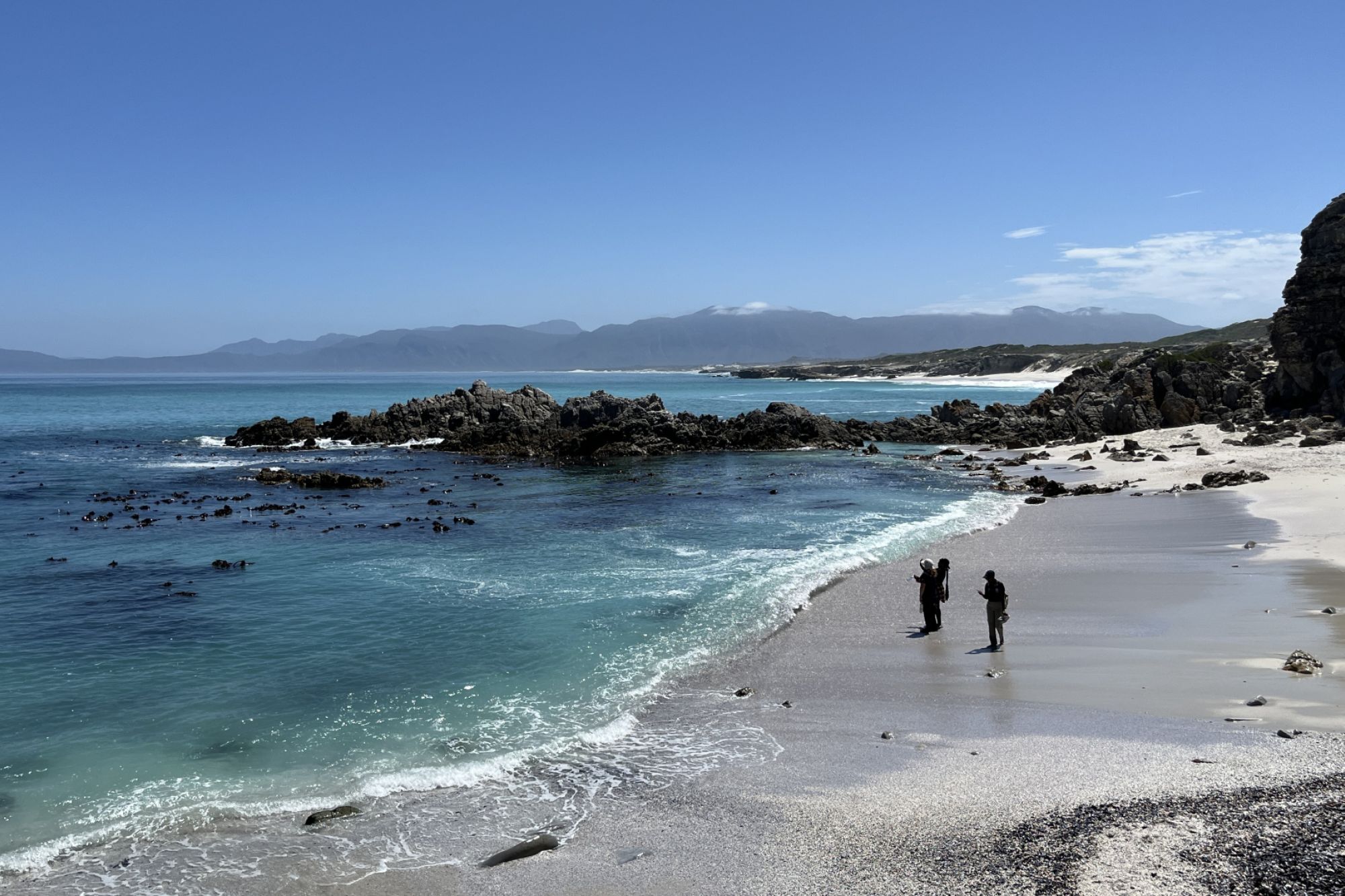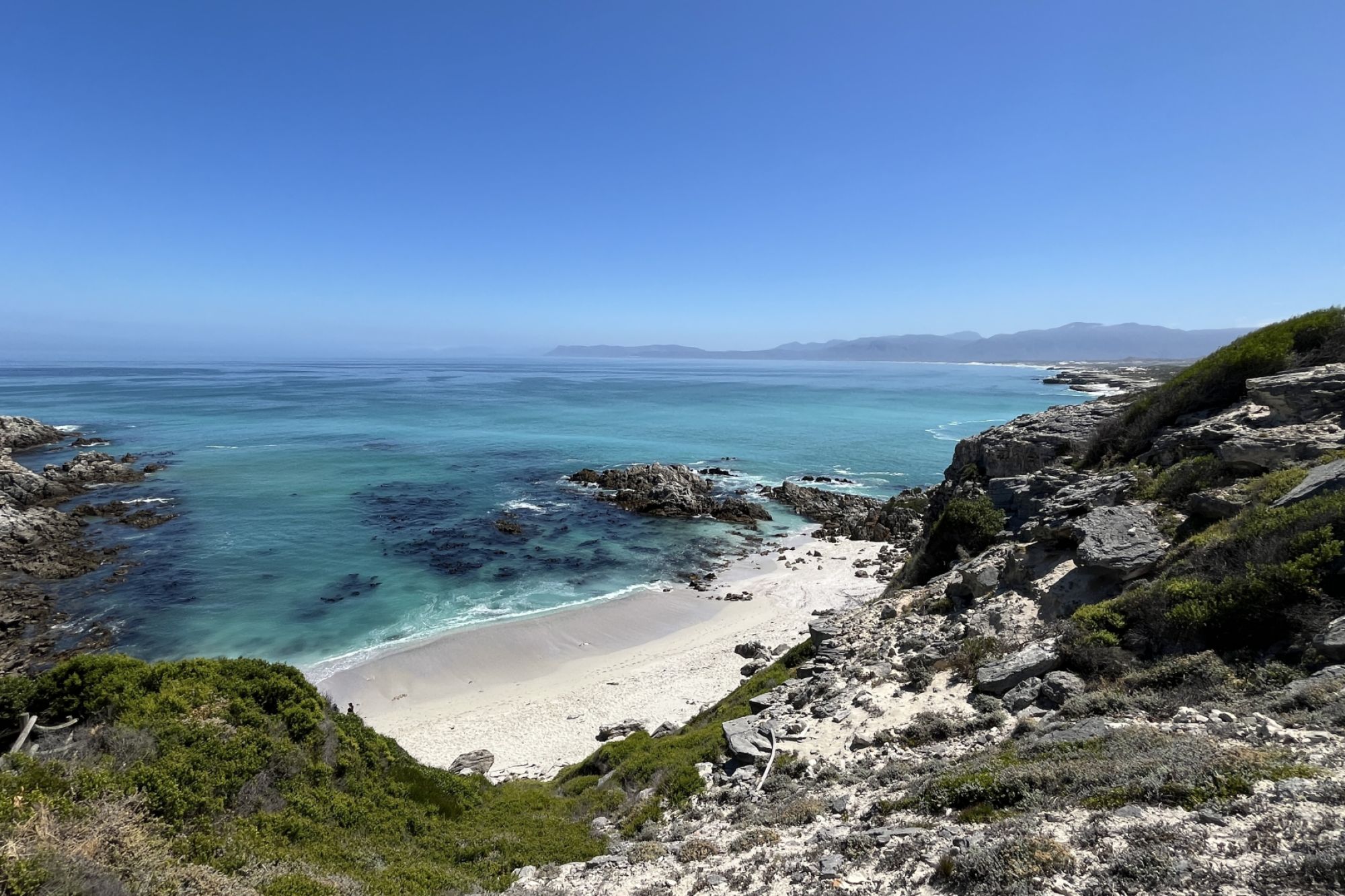
Celebrating South Africa’s storytellers on International Tourist Guide Day
A good tourist guide should be knowledgeable, articulate, and vibrant and leave their guests hungry for more insight into the incredible attraction they have just visited. In celebration of the invaluable role played by professional tourist guides, CapeNature, in collaboration with the Western Cape Department of Economic Development and Tourism, hosted an interactive event at Walker Bay Nature Reserve to mark International Tourist Guide Day.
Globally, 21 February is recognised as International Tourist Guide Day, and it is observed to pay tribute to the expertise and dedication of tourist guides in shaping and enriching travel experiences for international and local travellers alike.
This year’s event, themed “Celebrating Guides, Exploring Heritage,” offered an immersive educational experience, showcasing the history, culture, and traditions of the region. Tour guides in attendance at the event were given the chance to experience the warm hospitality they often afford their guests and were treated a unique tour of Walker Bay renowned for its dramatic landscapes, diverse ecosystems, and rich archaeological significance.
The highlight of the tour was the Klipgat Cave experience, which offers a glimpse into human history dating back over 70,000 years and is one of the most remarkable examples of early human dwellings in South Africa.
Established by the World Federation of Tourist Guide Associations (WFTGA) in 1990, ITGD is now commemorated in over 70 countries, underscoring the worldwide recognition of tourist guides as key pillars of the tourism industry.
The role of tourist guides is pivotal in connecting visitors with authentic experiences that highlight the depth and richness of South Africa’s cultural and natural assets. Since South Africa’s first ITGD celebration in 2009, significant strides have been made in raising awareness about the critical contributions of guides within the tourism value chain.
Tourist guides are at the heart of our tourism industry, ensuring that visitors have memorable and meaningful experiences. Their knowledge and passion help showcase the very best of the Western Cape. This day is an excellent way to acknowledge their hard work and the essential role they play in driving our tourism economy.
CapeNature CEO, Dr Ashley Naidoo said tourist guides are advocates for the Western Cape’s Cape Floristic Region.
Tourist guides bridge the gap between visitors and the environments they visit. They are the storytellers who bring history, culture, and conservation to life. Today, we thank them for their dedication and celebrate their invaluable contribution to telling our community stories.
CapeNature and the Department of Economic Development and Tourism were delighted to host an in-person event in 2025 following the success of an online awareness campaign and competition last year. The Walker Bay event helped to reinforce a commitment to knowledge exchange and professional growth within the sector. This year’s event served as a platform for guides to share insights, exchange expertise, and engage with industry leaders.
Tourist guides are encouraged to learn more about CapeNature’s Travel Trade Programme and sign up with the Entity here: https://www.capenature.co.za/travel-trade-programme






